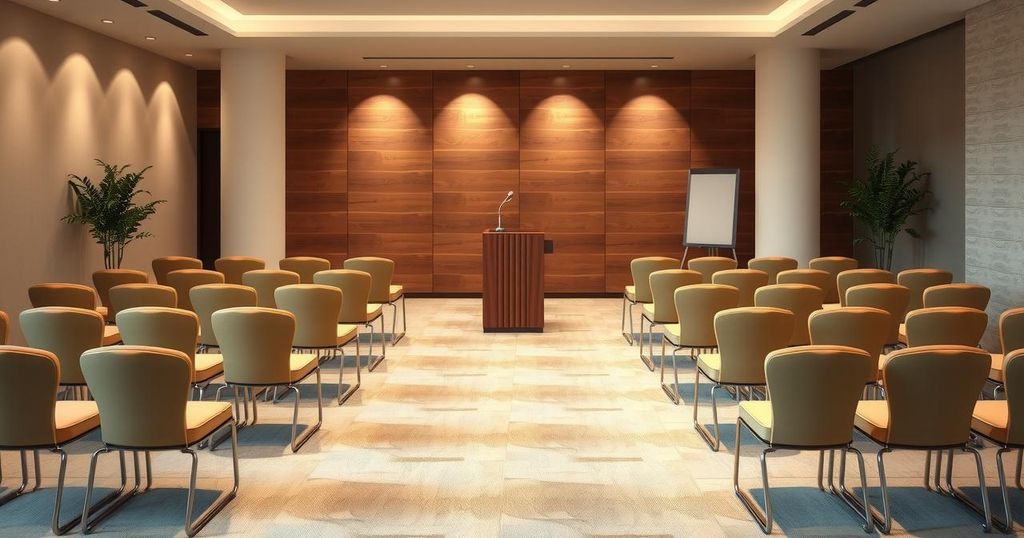Weiser Diplomacy Center Discusses Reconstruction Efforts in Syria

The Weiser Diplomacy Center hosted Qutaiba Idlbi and Dr. Abdalmajid Katranji to discuss Syria’s reconstruction post-civil war. They addressed the devastation caused, the emergence of self-governing institutions, and emphasized the need for U.S. involvement and the lifting of sanctions to aid in the recovery effort. Student engagement with accurate Syrian reporting was also encouraged.
The University of Michigan’s Weiser Diplomacy Center recently hosted a discussion featuring Qutaiba Idlbi, a senior fellow at the Atlantic Council, and Dr. Abdalmajid Katranji of Michigan State University. The discussion centered on Syria’s reconstruction following 14 years of civil war, addressing both the challenges faced and the current state-building strategies of the new Syrian government.
The talk highlighted the collapse of Bashar al-Assad’s regime in December 2024, leading to Ahmed al-Sharaa’s ascension as Syria’s new leader. Idlbi emphasized the devastation wrought by the civil war, noting the significant brain drain affecting the nation while expressing hope that Syrians are experiencing newfound freedom from previous authoritarian governance. “There’s a lot for Syrians to rebuild; half of Syria has left the country,” Idlbi explained, underscoring the magnitude of the crisis.
Participants addressed the criticisms directed at al-Sharaa regarding his previous associations with Al-Qaeda. However, both Idlbi and Katranji refuted these claims, asserting that al-Sharaa has severed ties and is actively combating terrorist groups. Katranji recounted his humanitarian work in Idlib, praising the establishment of civic institutions, contrasting it with the lack of organized aid efforts in territories controlled by Assad.
While acknowledging the extensive suffering inflicted by the civil war, Idlbi commented on how it inadvertently fostered the development of self-governing institutions among Syrians. He compared this to the U.S. experience in Iraq, arguing that Syria’s context allowed for a more organic nation-building effort. Idlbi affirmed that, despite historical U.S. missteps, American involvement in Syria’s reconstruction could still be beneficial.
Katranji stressed the importance of lifting sanctions imposed under the Caesar Syria Civilian Protection Act. He argued that maintaining these restrictions could lead to further instability and urged prompt removal, pointing out that global sentiments have shifted towards relaxing sanctions on Syria. He stated, “If you wait too long…another vacuum will be created.”
Art & Design senior Razaan Killawi, co-president of Students Organize for Syria, voiced her appreciation for the discussion and encouraged student engagement with similar topics. “I think it’s really meaningful…to learn from them and see what is actually happening,” she remarked, emphasizing the importance of accurate on-the-ground reporting in Syria.
In summary, the Weiser Diplomacy Center’s event elucidated the complexities of Syria’s reconstruction post-civil war. With insight from experts, it was highlighted that the nation’s challenges include significant brain drain and the need for civic engagement. The discussion urged for constructive U.S. involvement and the lifting of sanctions to support Syria’s promising yet complicated road to recovery. Students were encouraged to engage further with Syrian issues through accurate reporting and community discussions.
Original Source: www.michigandaily.com







